
 Emma D'Aquino with Consul Generale Francesco Genuardi, Letizia Airos, and Francesca Di Matteo
Emma D'Aquino with Consul Generale Francesco Genuardi, Letizia Airos, and Francesca Di Matteo- It all begins with a couple of stolen vegetables, following a childhood marked by hunger and poverty. The son of a Sicilian worker, Marano had four brothers and grew up in a home that “smelled of hunger.”
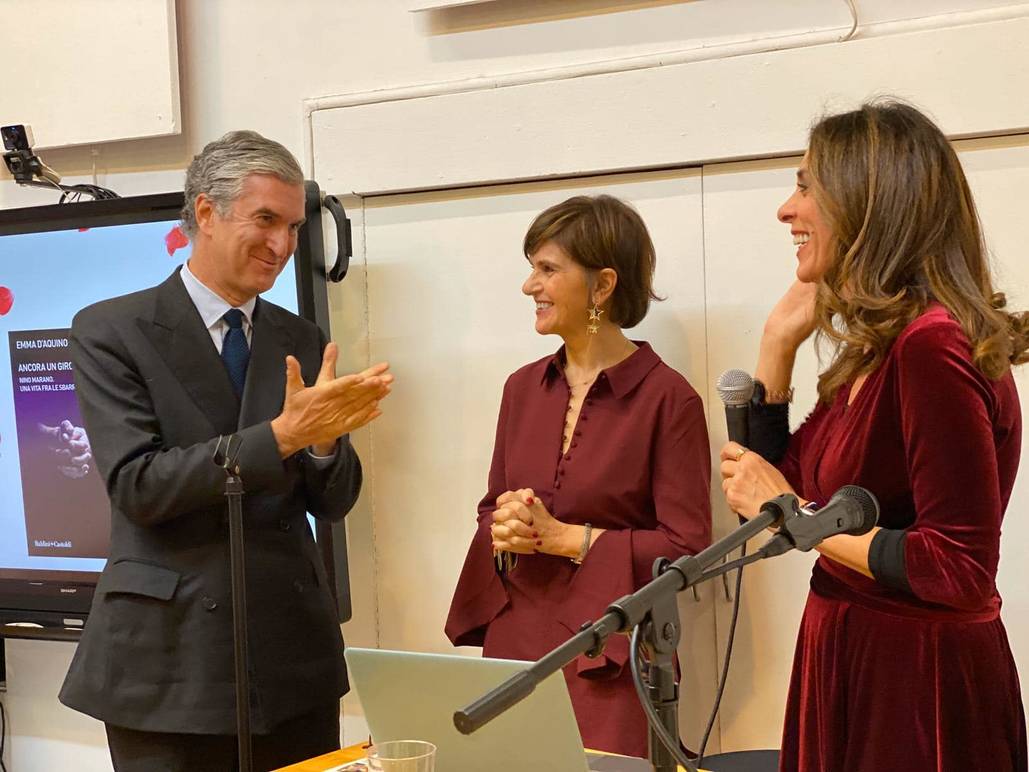 With Consul General Francesco Genuardi
With Consul General Francesco Genuardi- It gets hard to follow the unbelievable succession of events in which he is involved. Pages of criminal life, involving trials, escape attempts, sentences, prison transfers…
 Emma D'Aquino the students of St. John University
Emma D'Aquino the students of St. John University- Emma D’Aquino’s is an accurate, detached, controlled, careful tale by a deeply sensitive reporter.
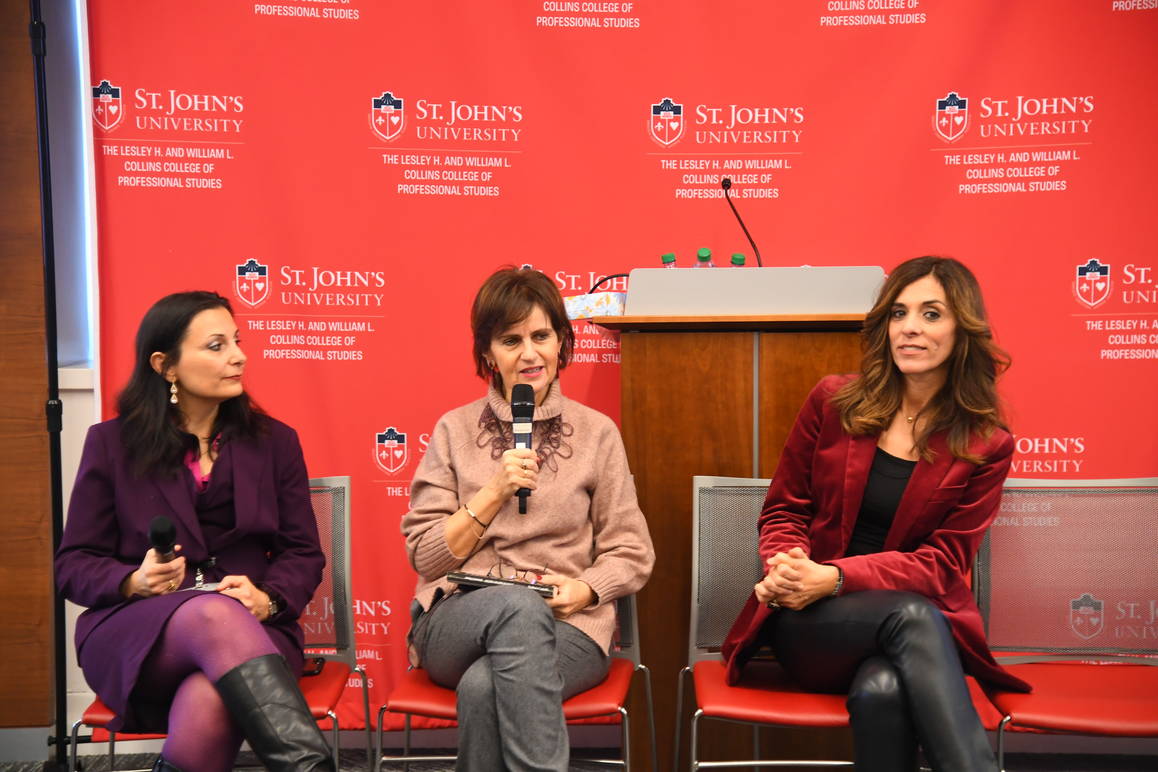 Emma D'Aquino at St. John University with Prof. Katia Passerini and Letizia Airos
Emma D'Aquino at St. John University with Prof. Katia Passerini and Letizia Airos- There are several aspects that stand out about him. In his words, we make out a sort of moral code, his “immoral morals.” Something primordial, ancestral, that comes from his humble and misfortunate origins, a clear lack of civic culture.
 Emma D'Aquino at St. John University
Emma D'Aquino at St. John University- And next to this man, far away but intimately close, is a woman: his wife. Sarina never abandoned him and his words spell out his love for her. The pages dedicated to this couple, to their children, are very intense.
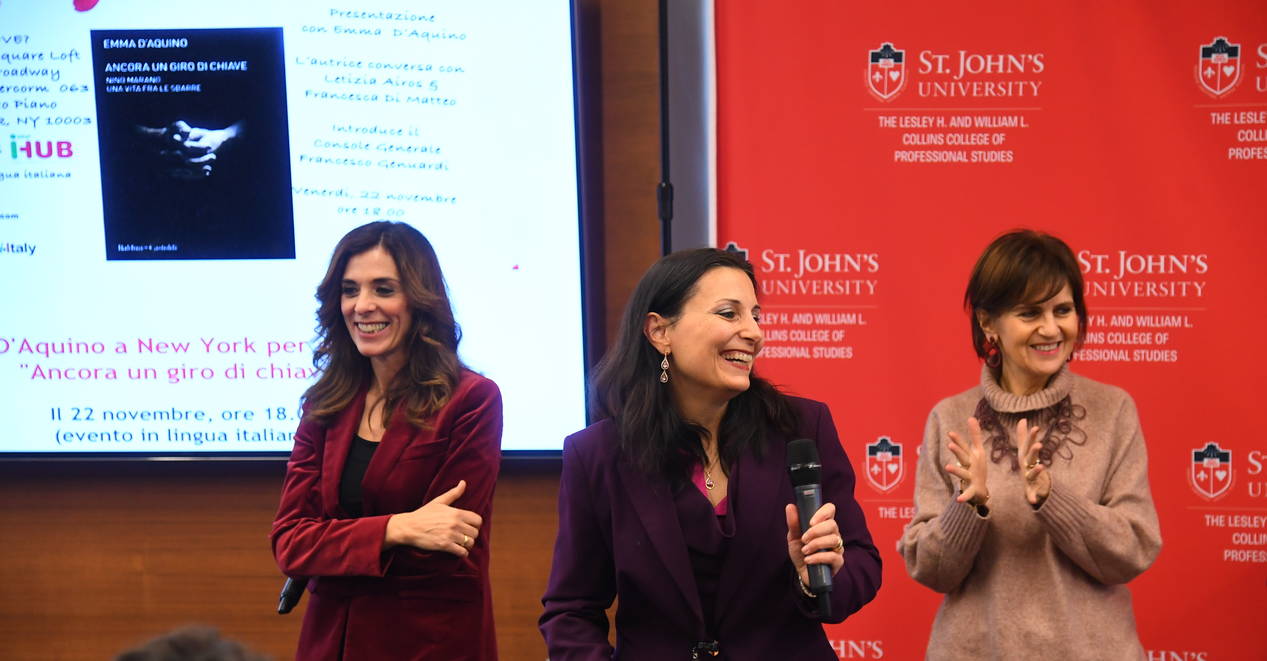
 Emma D'Aquino with Ambassador Mariangela Zappia
Emma D'Aquino with Ambassador Mariangela Zappia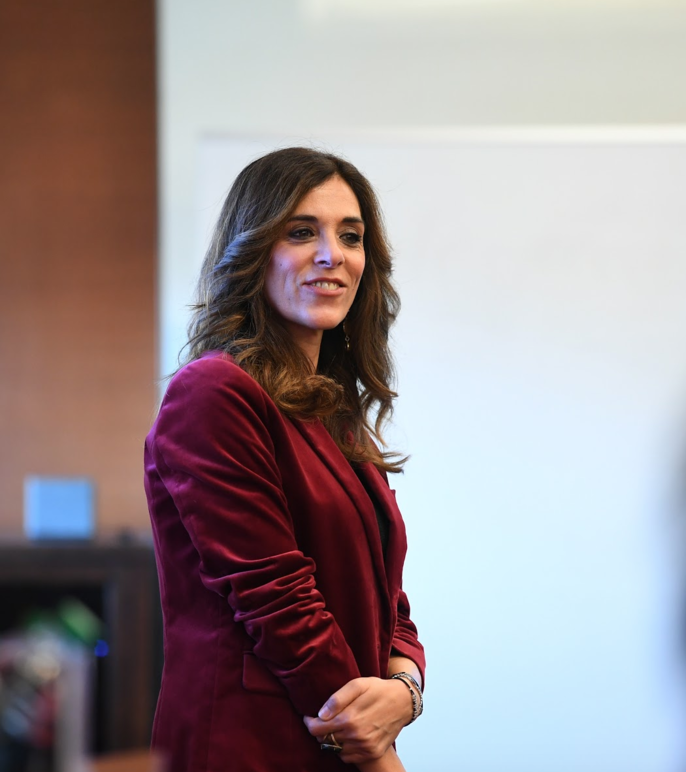
- I can’t help but wonder: did he become violent in prison or was he already violent? Had he been born in a different social context would he have become the same man? Could his life have taken a different path?
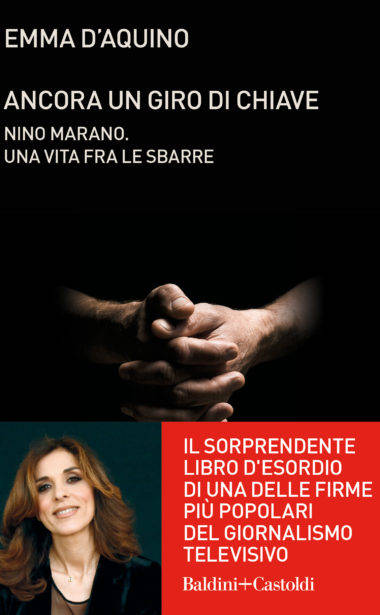
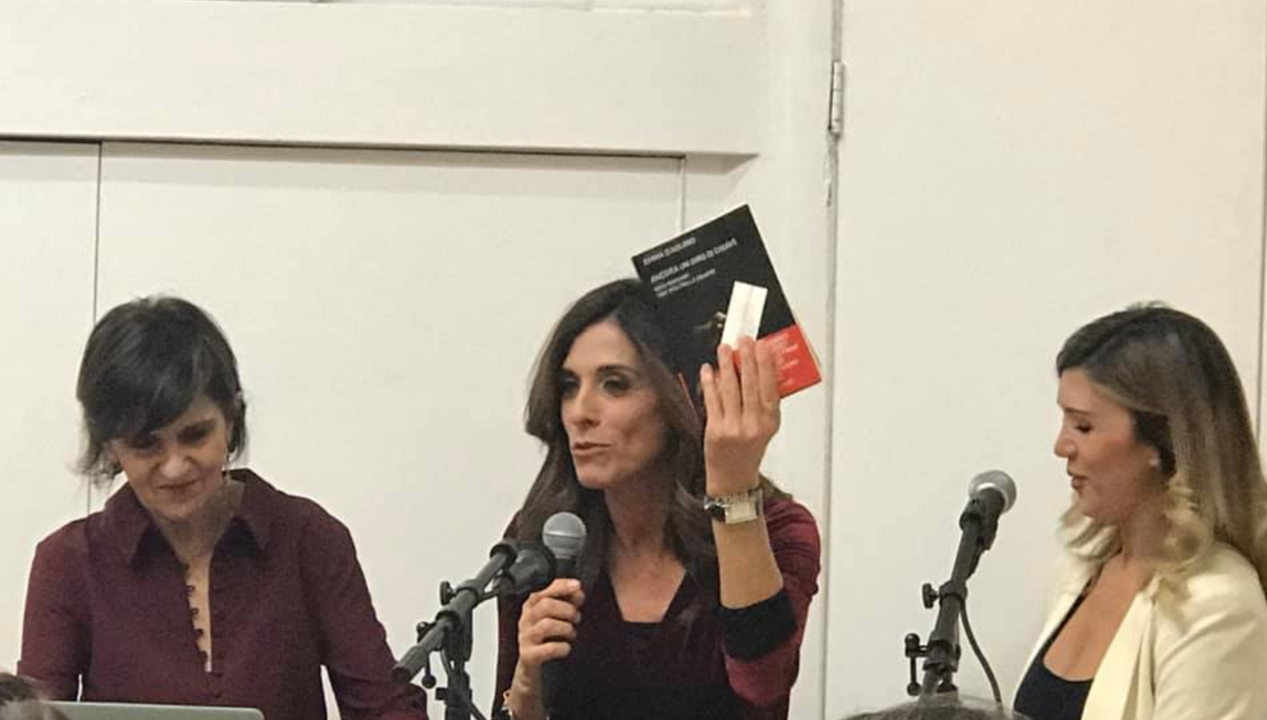
- The book leaves us with a sense of hope, beyond the tragic story it tells. It traces a path towards “redemption.” Many questions about how to live and build a life behind bars today remain.
 Images of the presentation in New York
Images of the presentation in New York